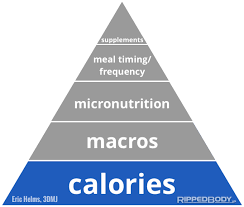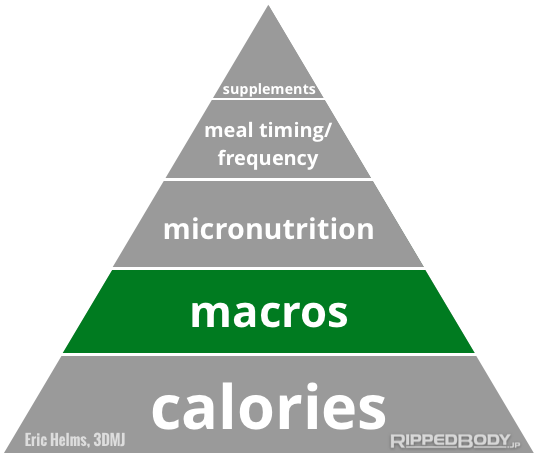Your standards for yourself are high, so you’ve put the time and energy into reading up on the latest of nutritional practices and are focusing on eating as healthy as possible at least 90% of the time. You feel good in knowing that you’re making wise food choices and are fueling your body with everything that it needs to see success.
But, the question is, are you really?
Many people think they are eating healthy but the unfortunate fact is that their body may not be making use of the foods they are feeding themselves as well as they think.
Small things can influence the nutrient availability to your body immensely, so keeping these in mind is key.
Let’s go over five things you must do to ensure your body is getting the nutrients it needs.
Do The Right Testing
 First, consider getting some higher level testing done. For instance, a blood panel as well as a hair analysis test can pinpoint key nutrients that your body is low in, or too high in.
First, consider getting some higher level testing done. For instance, a blood panel as well as a hair analysis test can pinpoint key nutrients that your body is low in, or too high in.
These nutrients, if not brought in, could then go on to lead to serious deficiencies, imbalances, and a number of unwanted symptoms.
For instance, if you aren’t getting enough nutrients like iodine, vitamin B12, and magnesium in your diet, it could lead to low energy levels, lack of recovery from workouts, and poor metabolic output.
If you never have a blood test to assess for these nutrients however, you may never find the root cause.
Additionally, blood testing can also help you gain awareness of how your insulin sensitivity is shaping up, which is another key determinant of your body composition and health status.
It doesn’t take much time to do this testing, but it can give you a wealth of information.
Choose High Quality Food Sources
Another important point to remember is that not all foods are created the same. Grain feed beef for instance is far different from organic grass finished beef. The entire nutritional profile – including the types of fats predominately found in this meat will change depending on how the cows were raised. Those fed grains will have a high level of unhealthy saturated fats, while those fed grass will have CLA fats along with omega-3 fatty acids.
 When possible, to ensure that you are taking in as many nutrients as possible, choose organic food sources that are freshly grown by a local farmer. Not only will this support your local community, but it will help ensure the highest quality of nutrient dense foods.
When possible, to ensure that you are taking in as many nutrients as possible, choose organic food sources that are freshly grown by a local farmer. Not only will this support your local community, but it will help ensure the highest quality of nutrient dense foods.
When foods are shipped and undergo lengthy travel times, they lose some of their fresh flavor and can also experience nutrient degradation as well.
Ensure Sufficient Variety
One mistake that some people make with their diet plan is not getting enough variety. They have their macronutrient targets – they know they need ‘X’ amount of proteins, carbs, and fats. So they figure, any food that hits those targets will do.
They may even ensure they are getting healthy sources in. They base their diet around chicken, turkey, sweet potatoes, rice, nuts, olive oil, and fresh produce.
This is great except they may still be falling short on key vitamins and minerals. If you typically gravitate to the same five or ten foods over and over again, it’s easy to fall into nutritional deficiency.
Variety will not only help wake up your taste buds and reduce the chances you experience dietary boredom (which will surely lead you to eat foods you shouldn’t!), but it also helps ensure that you get in a broad spectrum of vitamins and minerals. Additionally, it can even help reduce the chances that you experience a food allergy as well. Many people who consume the same food over and over again start to eventually struggle with those foods.
Try and introduce one new healthy food into your diet each and every week. A simple strategy? Add one new color of vegetable to your menu each and every week. This is a great way to achieve the full spectrum of nutrients and ensure optimal health.
Eat Effectively
Considering the fact that you’ve been eating for over a couple decades now, you may feel like you know how to eat. It’s a basic skill you learned in your earliest of years.
But, as time passes on, you can pick up bad habits. Ask yourself this, how many meals out of the day do you feel rushed to get your food in?
If you answered most of them, you’re like the vast majority of the population today. We live in a society where we are constantly rushing and just don’t have time to sit down and eat any longer.
This can lead to rushed meals and more importantly, lack of chewing.
Always keep in mind that chewing is the very first step in the digestion process. It breaks your food down into smaller bits and pieces, which then makes it easier for your digestive tract to soak up the nutrients found in the food.
If you are not chewing your food properly, it can be more challenging to get those nutrients out, so much so that some of the nutrition may be left in the food. Eventually it is excreted as waste and you’re left with a less nutritious diet than you thought you were getting.
 Slow down. Take a few minutes extra per meal and really chew your food. Your nutritional status will greatly benefit by doing so.
Slow down. Take a few minutes extra per meal and really chew your food. Your nutritional status will greatly benefit by doing so.
As an added benefit, by slowing down your chewing, you may also naturally reduce your calorie intake because you’ll be giving your brain time to process that your body is full.
While you’re slowing down, also try and relax as much as possible. Experiencing stress while eating can also lead to great digestive strain and make it less likely that you get all the nutrients out of your food as well. If you relax, you’ll be stimulating your parasympathetic nervous system, which needs to be primed for proper digestion.
Assess Your Calorie And Macronutrient Needs
 Finally, the last step in ensuring that you are eating as healthy as you think you are is to assess your calorie and macronutrient needs. If you have not done this yet but instead are just focusing on ‘eating healthy’, you could be missing out on key nutrients your body requires.
Finally, the last step in ensuring that you are eating as healthy as you think you are is to assess your calorie and macronutrient needs. If you have not done this yet but instead are just focusing on ‘eating healthy’, you could be missing out on key nutrients your body requires.
For instance, if you do not know how many grams of dietary fat you need each day and aren’t tracking your fat intake, you could be falling short in this important nutrient.
As healthy fats are important for allowing your body to absorb the fat-soluble vitamins A, D, E, and K, if you aren’t getting enough, there’s a good chance you’ll suffer a deficiency with these nutrients. Likewise, you also need to ensure you are getting the right ratios of omega-3’s, 6’s, and 9’s, so balancing your wild salmon intake with the nuts you consume is critical.
 Likewise, if your calorie intake is too low, you’ll struggle to get in all the nutrients you need no matter what foods you eat simply because you aren’t eating enough volume.
Likewise, if your calorie intake is too low, you’ll struggle to get in all the nutrients you need no matter what foods you eat simply because you aren’t eating enough volume.
So plan out your nutritional program with a certified nutritionist. Make sure you know your target numbers and hit those each and every day.
There you have five steps you can take right now to ensure that you are eating as healthy as you think you are. Remember that a nutrition program involves an ongoing process of individual fine-tuning. However by taking these steps, you can ensure that you get as close to ideal as possible.
Beyond this, it’s always a smart idea to supplement with fish oil and a quality probiotic as few people will ever take in enough of these nutrients on a daily basis. And, if you want to go one step further, consider adding a quality multi-vitamin to give you the back up support and peace of mind you need to know that you are always being taken care of if your meal plan does happen to fall short.

